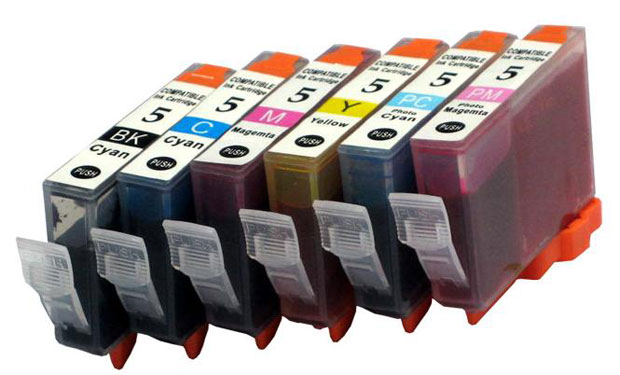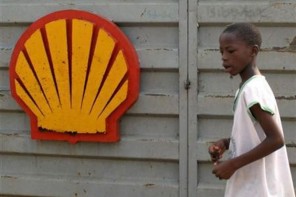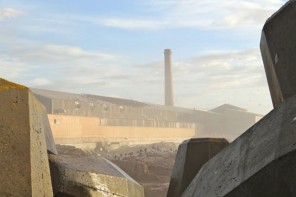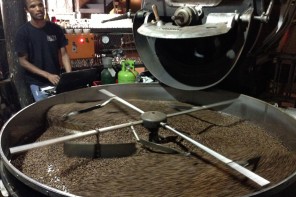Words by Wilma den Hartigh
Lexmark South Africa’s ink cartridge recycling initiative for babies (Crib) is putting empty printer cartridges to good use by protecting the environment and helping children in need.
Mark Hiller, country GM of Lexmark South Africa says the printing industry has a unique responsibility to ensure that the millions of consumable items discarded every year don’t end up in landfill sites, or pollute the environment.
This is why Lexmark has a zero landfill policy to reduce landfill waste, recycle 100% of the components of every cartridge sold, and ensure toxic or hazardous material is treated safely.
According to an itweb article, the problem with printing consumables, besides filling up landfills, is that residual inks and powders in print cartridges release hazardous substances into the air, soil and water. They can also contain poisonous heavy metals such as lead and mercury.
Lexmark’s cartridge recycling project is addressing both environmental concerns while making a difference to the lives of children in South Africa.
The printing products company is using discarded cartridges to raise funds for Cotlands, a national children’s charity that has been operational in South Africa for 76 years.
In partnership with Cotlands, Lexmark established Crib to raise funds for the organisation’s programmes, and contribute towards the daily costs associated with looking after children.
Hiller says that when they approached the charity to find out where their contribution would make the biggest impact, Cotlands pointed out that the daily expenses of children was the organisation’s greatest ongoing need.
Through Crib, Lexmark recovers used inkjet cartridges and laser toners from its customers, recycles them, and in return makes a financial contribution to Cotlands in the form of a currency called baby days. One baby day equals the cost of housing, feeding, clothing and medical care for one child at Cotlands for the period of one day. Lexmark’s financial contribution equates to a certain number of cartridges returned.
Over the past 11 years, Lexmark has raised R4.5-million (US$518 000) for Cotlands, and they have sponsored 87 000 baby days. “Cotlands does amazing work and has a major impact on South Africa,” says Hiller. “They’ve helped to introduce a care model that a lot of organisations are copying in their communities on a smaller scale. We see our financial contribution as money well invested.”
Better care, reducing HIV deaths
Cotlands provides housing and care to abandoned, abused and HIV-positive children from birth to 14 years of age.
The charity offers numerous residential and community-based programmes to meet the needs of vulnerable children, such as children’s hospices, places of safety, community care projects, nutrition and early childhood development programmes.
In recent years the organisation has shifted its focus from residential to community-based care facilities, as the long term benefits of a supportive family and community have a positive impact on the holistic development of children.
Lois Moodley, fund development manager at Cotlands, explains that they are doing more work to strengthen communities and empower families to help them take better care of children. However, in severe cases of neglect or abuse, children are still removed from their home environment.
Another achievement for Cotlands is that it has reduced its hospice care component considerably, showing the significant impact of antiretroviral therapy on reducing the death rate among HIV-infected infants and children.
Making recycling easy
Since the inception of Lexmark’s recycling project about 200 tons of discarded printing consumables destined for landfills was recycled instead. The company has also changed the composition of its plastic to use more recycled materials.
The programme is designed in such a way that it’s easy for consumers to recycle empty cartridges.
For clients using a large number of laser or inkjet cartridges, bulk collection boxes are placed on site and removed at no charge once they are full, making it convenient for businesses to participate. A centralised collection service also reduces the amount of transport needed to dispose of the cartridges. “Interest from corporate clients is increasing, and the boxes remove the logistical hurdles to return cartridges,” Hiller says.
For home users who perhaps only buy one cartridge at a time, Lexmark includes an envelope inside all inkjet boxes that enables consumers to send back their empty cartridge, via free post. Thanks to the programme, Lexmark has successfully increased the percentage of laser empties collected each year, and they’ve noticed that more corporates are participating in the initiative. By returning the empty cartridges consumers can be assured that they are re-used and recycled and that money is being raised for a worthy cause. Once the cartridges are collected and sorted, they are shipped to a specialised recycling plant in eastern Europe, where the different grades of plastic are sorted, ferrous and non-ferrous metals are separated, and toxic materials are removed. In the process moving parts which can be re-used, such as springs, are recovered. “A lot of technology is contained in that cartridge – it is not just a container to hold the ink. There are many working parts and ingredients,” Hiller says.
Lexmark also compiles reports for their corporate clients, detailing how they are meeting their own recycling initiatives. He says the reports are popular with clients, such as Woolworths, who prioritise green business practices. The report contains a summary of the number of cartridges that have been collected and how many tons of waste was not sent to landfills.
Encouraging more recycling
Hiller says although the level of environmental awareness in South Africa is not yet as advanced as that of Europe, for example, he believes it is increasing as more initiatives are put in place. “It is heart-warming and humbling to see Crib’s success.”











